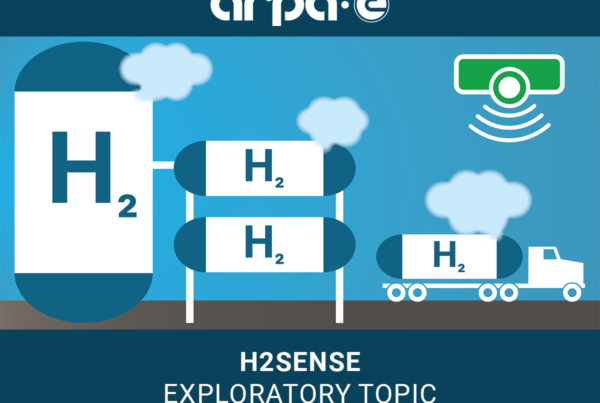
After both of the H2GP California Regional matches on 02.26.2022 and 03.05.2022 your correspondent sat down and did a quick Q&A session with the top six teams, plus one team who qualified for the California State Finals and deserves an honorable mention.
Anyone who has attended an industry event like the ACT Expo or CES in Las Vegas knows that the voice of young people in the hydrogen and fuel cell industry is lacking. This is not because young people do not have plenty to say about the industry, but because, for the most part, the industry has yet to realize that its success is inextricably tied to the investment that young people will put into it. After all, we need to face facts. Any newer technology like blockchain, BEVs, and the Internet became successful directly because young people embraced it and forced “adults” to get onboard.
Certainly, when it comes to the climate, it is often young people who express the most outrage with adults and the current state of things, as well they should.
This is why the below videos must be seen as a call to action by the hydrogen and fuel cell industry. An easy example as to why this is the case is because of the last question in each video as to which FCEVs the students like best. Typically, the answer is the Toyota Mirai, and while that is a reasonable answer it certainly reflects of how hardly Honda and Hyundai register among young people. If Honda and Hyundai barely register, then imagine how little companies like Bosch and Nikola matter right now to young minds.
While lack of recognition matters significantly so, too, does the future. On 03.02.2022 at the Hydrogen Online Workshop Mark Kirby from the CHFCA gave a keynote speech. In his speech he showed a slide with two points of data. One point stated that in 2018 there were about 2,000 people in the hydrogen and fuel cell industry. The second piece of data projected that by 2050 there will be 358,000 people. However, where are those people supposed to come from in 2050 if the needed investments in the H2GP and other areas are not made now?
As a cautionary tale regarding the steep cost an industry pays when it does not make proper investments is the cybersecurity sphere. Between 2003-2013 the cybersecurity industry made the barest of investments in young people, and then after 2013 the industry essentially gave up on investing in young people. Cybercrime had been rising since 2001, but starting in 2013 it really took off. Today almost all organizations globally find it impossible to adequately defend against hackers, because so few young people are going into the cybersecurity field. Consequently, cybercrime costs the global economy trillions of dollars every year, and the sense of security for most humans on Earth has been significantly diminished since 2001. While all of that is exceedingly sad, it is made even more so because it did NOT have to happen. Had companies like FireEye, Microsoft, and others invested properly in educating and connecting with young people, then they would now have a copious stream of individuals willing and able to enter the cybersecurity field.
The H2GP competition is focused on the young people who are fully capable of becoming the next fuel cell stack engineers, software engineers, content creators, and influencers. (In fact, your correspondent has spoken with two H2GP veterans and one of them is majoring in marketing and one in software engineering.) However, thus far your correspondent has noted with severe dismay that the hydrogen and fuel cell industry has yet to fully embrace the competition.
What choice does the hydrogen and fuel cell industry want to make? It can do what the cybersecurity industry did and not invest properly in young people. If that is the path the industry deems most appropriate, then it will forever be severely lacking young people who are interested in becoming fuel cell stack engineers and other professionals the industry needs to support reasonable growth. In which case the putative number above of 358,000 by 2050 may be unattainable.
Or, the hydrogen and fuel cell industry can act today with humility and forethought by learning from the colossal mistakes of the cybersecurity sector, and invest whole-heartedly and with unwavering commitment in the H2GP competition. (Currently Toyota is the primary organization that has shown such thoughtfulness, and it is being joined beginning this month by Raven SR.) This will enable the industry to increase the amount of people who want to own FCEVs and other fuel cell-based products, and it will also secure for itself the needed supply of talent. Consequently, the industry will be able to grow effectively and quickly, which will empower it to help the global economy successfully tackle the task of decarbonization.
However, if the industry fails to embrace the H2GP competition as it needs to, then that failure will be catastrophic. Not only because of labor shortages and under representation of fuel cell products among buyers, but also because fuel cell technology will fail to become the keystone of the global economy. And if that failure comes to pass, then humanity itself may fail as well.
Now the most important part of this article, the young people.
Independence High School
Arroyo High School
Heritage High School
Mira Loma High School
Oakwood Teams 1 and 2
Oakwood Teams 3 and 4
Los Alamitos Team


Jesse Lyon, Contributor
The views and opinions expressed herein are those of the authors and do not necessarily reflect the official policy or position of Fuel Cells Works, its directors, partners, staff, contributors, or suppliers. Any content provided by our contributors or authors are of their own opinion and are not intended to malign any religion, ethnic group, club, organization, company, individual or anyone or anything.
Read the most up to date Fuel Cell and Hydrogen Industry news at FuelCellsWorks




